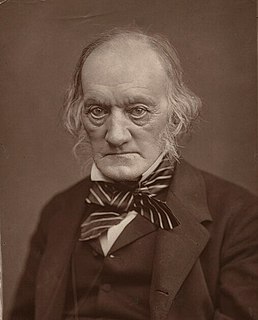A Quote by Jay Samit
The greatest challenge to most innovation centers around the world is many nations' punitive attitudes towards failure. In most of the world, if your first business fails, no one will work with you again. But, trial and error is the genesis of innovation.
Related Quotes
But the - look, I think that this - the United States of America is still the most powerful economy in the world. It is an incredible engine for creativity and innovation. And it has the most - smartest, most effective workforce in the world. So we have a lot going for us, in spite of the fractiousness of our politics.
In general, the questions that are on our mind are the same questions that have been driving our work over the past decade. How do we bring order to this messy, unpredictable world of innovation? How can we dramatically improve the chances of creating a successful new-growth business? How can we do this again and again? More specifically, it has become very clear that the fundamental paradigms of market segmentation and branding are badly broken - and we're working on developing more useful theories for these dimensions of innovation.
Were I to make the announcement and to run, the reasons I would run is because I have a great belief in this country [America]. ... There's more natural resources than any nation in the world; the greatest education population in the world; the greatest technology of any country in the world; the greatest capacity for innovation in the world; and the greatest political system in the world.
People always ask why I stay in the online space versus going to TV or film, like most people would do, and the answer is that there's opportunity for innovation online - not only innovation in storytelling, but also innovation in how you interact with your audience and that is very fulfilling to me personally.
Getting global innovation projects right is really important as they create competitive advantage two ways. When the knowledge for an innovation is from different sites around the world, it's very much more difficult for competitors to copy these innovation - they'd have to access the same knowledge from the same places. Secondly, costs and time to market can be significantly reduced leading to first mover advantage through parallel development in global projects.
Leapfrog innovation - consistent, constant, ridiculous leapfrog innovation - only happens within a dictatorship. Any time you try to do something really innovative, most people aren't going to understand it until after they experience it. So when you're developing in innovation, you have to be a dictator.
Generally, the technology that enables disruption is developed in the companies that are the practitioners of the original technology. That's where the understanding of the technology first comes together. They usually can't commercialize the technology because they have to couple it with the business model innovation, and because they tend to try to take all of their technologies to market through their original business model, somebody else just picks up the technology and changes the world through the business model innovation.
It's the unlikely juxtaposition of creativity and logic which causes the wooliness and confusion around the term 'innovation'. Everybody wants to be innovative; many companies and ideas are proclaimed to be innovative and no one doubts that innovation is a money spinner. And, thus, we are all looking for the magic formula. Well, here you go: Creativity + Iterative Development = Innovation.

































